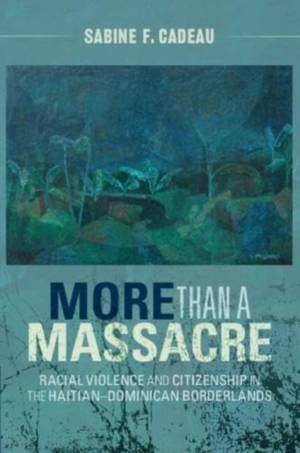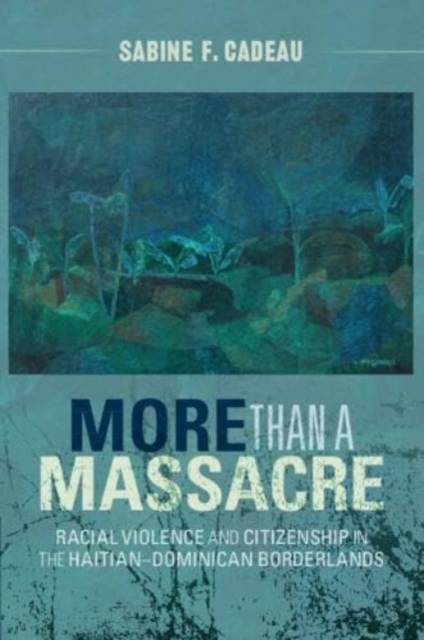
- Afhalen na 1 uur in een winkel met voorraad
- Gratis thuislevering in België vanaf € 30
- Ruim aanbod met 7 miljoen producten
- Afhalen na 1 uur in een winkel met voorraad
- Gratis thuislevering in België vanaf € 30
- Ruim aanbod met 7 miljoen producten
Zoeken
More than a Massacre
Racial Violence and Citizenship in the Haitian–Dominican Borderlands
Sabine F Cadeau
€ 36,45
+ 72 punten
Uitvoering
Omschrijving
More than a Massacre is a history of race, citizenship, statelessness, and genocide from the perspective of ethnic Haitians in Dominican border provinces. Sabine F. Cadeau traces a successively worsening campaign of explicitly racialized anti-Haitian repression that began in 1919 under the American Occupiers, accelerated in 1930 with the rise of Trujillo, and culminated in 1937 with the slaughter of an estimated twenty thousand civilians. Relatively unknown by contrast with contemporary events in Europe, the Haitian-Dominican experience has yet to feature in the broader literature on genocide and statelessness in the twentieth century. Bringing to light the massacre from the perspective of the ethnic Haitian victims themselves, Cadeau combines official documents with oral sources to demonstrate how ethnic Haitians interpreted their changing legal status at the border, as well as their interpretation of the massacre and its aftermath, including the ongoing killing and land conflict along the post-massacre border.
Specificaties
Betrokkenen
- Auteur(s):
- Uitgeverij:
Inhoud
- Aantal bladzijden:
- 325
- Taal:
- Engels
- Reeks:
Eigenschappen
- Productcode (EAN):
- 9781108931526
- Verschijningsdatum:
- 4/04/2024
- Uitvoering:
- Paperback
- Formaat:
- Trade paperback (VS)
- Afmetingen:
- 152 mm x 229 mm
- Gewicht:
- 435 g

Alleen bij Standaard Boekhandel
+ 72 punten op je klantenkaart van Standaard Boekhandel
Beoordelingen
We publiceren alleen reviews die voldoen aan de voorwaarden voor reviews. Bekijk onze voorwaarden voor reviews.











